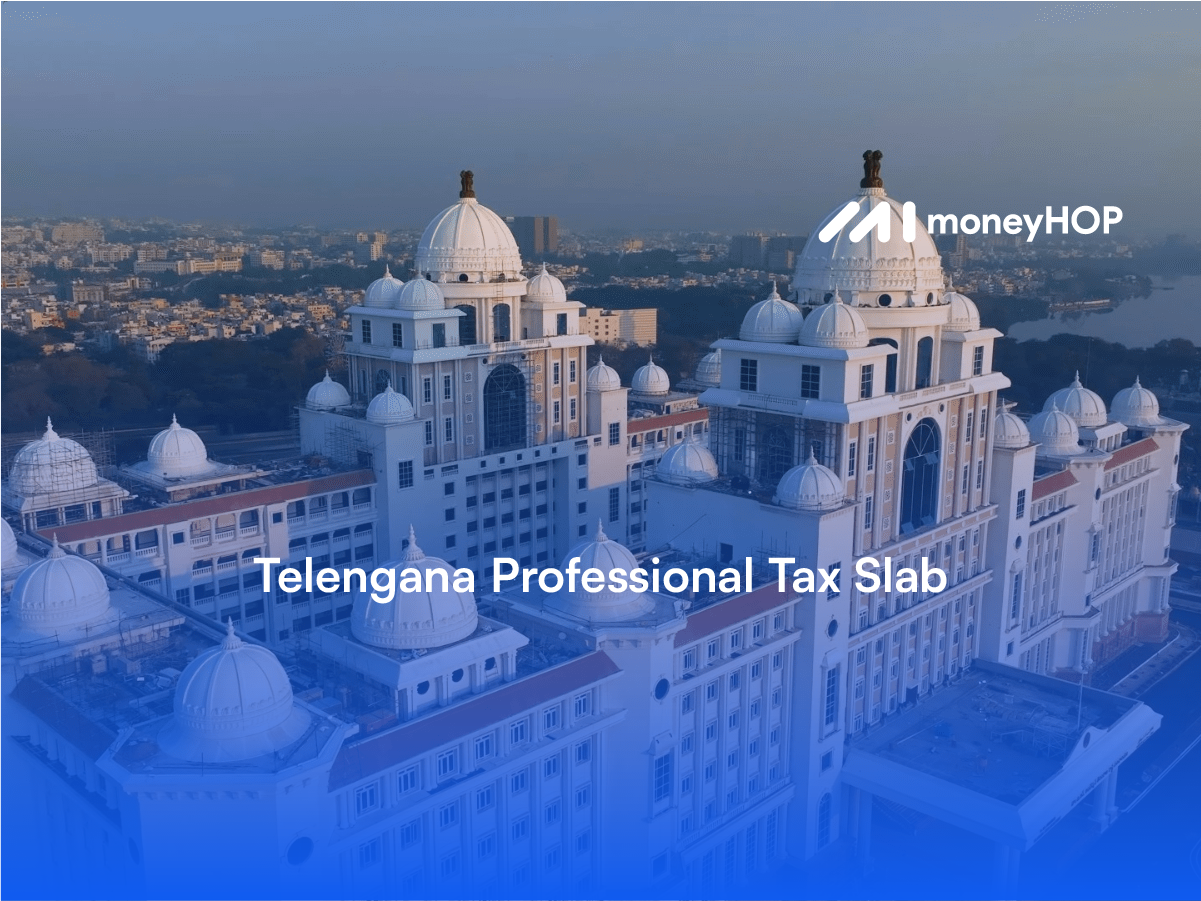Professional tax is a direct tax levied by state governments in India on individuals earning income through employment, profession, or trade. It’s a contribution to the state’s treasury for the resources and infrastructure used by working professionals. The tax is imposed based on an individual’s income, and tax slabs differ according to the state.
The Telangana Professional Tax Act, 1987
The Act was enacted in 1987 when Telangana was still part of Andhra Pradesh. However, it was adapted to the new state of Telangana in 2014, following the split of Andhra Pradesh. The tax is imposed on a graduated basis, meaning that the higher your income, the more tax you will pay. The maximum amount of tax levied under the Act is INR 2,500 per year.
Also read: 3 Tips to Minimize International Travel Tax in India
Telangana Professional Tax Slab
| Monthly Salary | Tax Payable per Month |
|---|---|
| Up to INR 15,000 | Nil |
| From INR 15,000 to INR 20,000 | INR 150 |
| Above INR 20,000 | INR 200 |
Exemptions from professional tax
There are several exemptions from professional tax in Telangana. These include:
- Individuals whose monthly income does not exceed INR 1,000
- Individuals whose annual income does not exceed INR 12,000
- Traders whose annual turnover does not exceed INR 1,00,000
- Individuals who are differently abled (disability)
- Senior citizens above the age of 65
Due Date for Professional Tax Payment in Telangana
Individuals registered for Professional Tax are entitled to submit a monthly statement (Form V) to the tax authority with details of salaries disbursed and tax deducted from these salaries. The complete tax payment and statement submission should be completed by the 10th day of the following month. This can made out via treasury challan, DD, cheque, or e-payment. If earning individuals in Telangana do not pay their professional taxes, the State Government will levy a fine that could range from 25% to 50% of the total amount due.
Obligations for Payment of Professional Tax
When it comes to employees, the duty of deducting and remitting professional tax to the State Government rests with the employer. For corporate entities, partnerships, or sole proprietorships, there is a mandatory requirement to secure a professional tax registration certificate. This is crucial for the payment of professional tax related to their business operations or professional activities.
Individuals engaged in freelance work, even without any employees, must also register under the professional tax regulations of their respective states.
Also read: Exemptions From TCS – TCS on International Money Transfer
How to pay professional tax in Telangana
Professional tax in Telangana can be paid online or offline.
- Online: You can pay professional tax online through the website of the Telangana State Commercial Taxes Department.
- Offline: You can pay professional tax offline at any Mee Seva center or the office of the Commercial Taxes Officer.
How to pay Professional Tax online
To make a Professional Tax (PT) payment in Telangana online, you can follow these steps on the Telangana Government’s official website:
- Start by selecting ‘E-registration’ under the ‘New Dealer’ subsection, and then choose ‘PT Registration’.
- Log in to your ID
- Go to ‘e-Payment’ and choose the appropriate tax type from the options provided.
- Enter all necessary information and click ‘Submit’.
- Review the information you’ve entered, and then proceed to ‘Make Payment’.
- Choose a bank from the provided list and finalize the payment using Net Banking or other methods available.
Need to pay your university fees and living expenses abroad?
Make international money transfers easier than ever! Enjoy no paperwork, secure & swift transfers, and real-time tracking.
Utilization of Professional Tax Revenue by the Telangana State Government
In Telangana, as in other states of India, professional tax collected from individuals and businesses is a pivotal source of revenue for the state government. The specific allocation and leveraging of funds depend on the ruling party, the state’s budget, policies, and development priorities.
Revenue from professional tax primarily supports state development projects, public services, and social welfare schemes. It finances infrastructure, healthcare, education, and disaster management, while also aiding in administrative costs and economic development initiatives. This ensures comprehensive growth and resilience within the state.



Leave a Reply